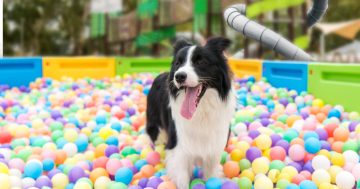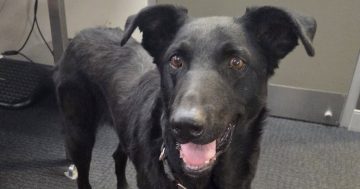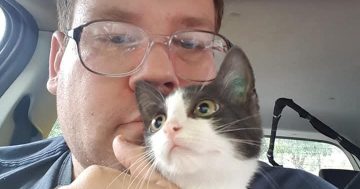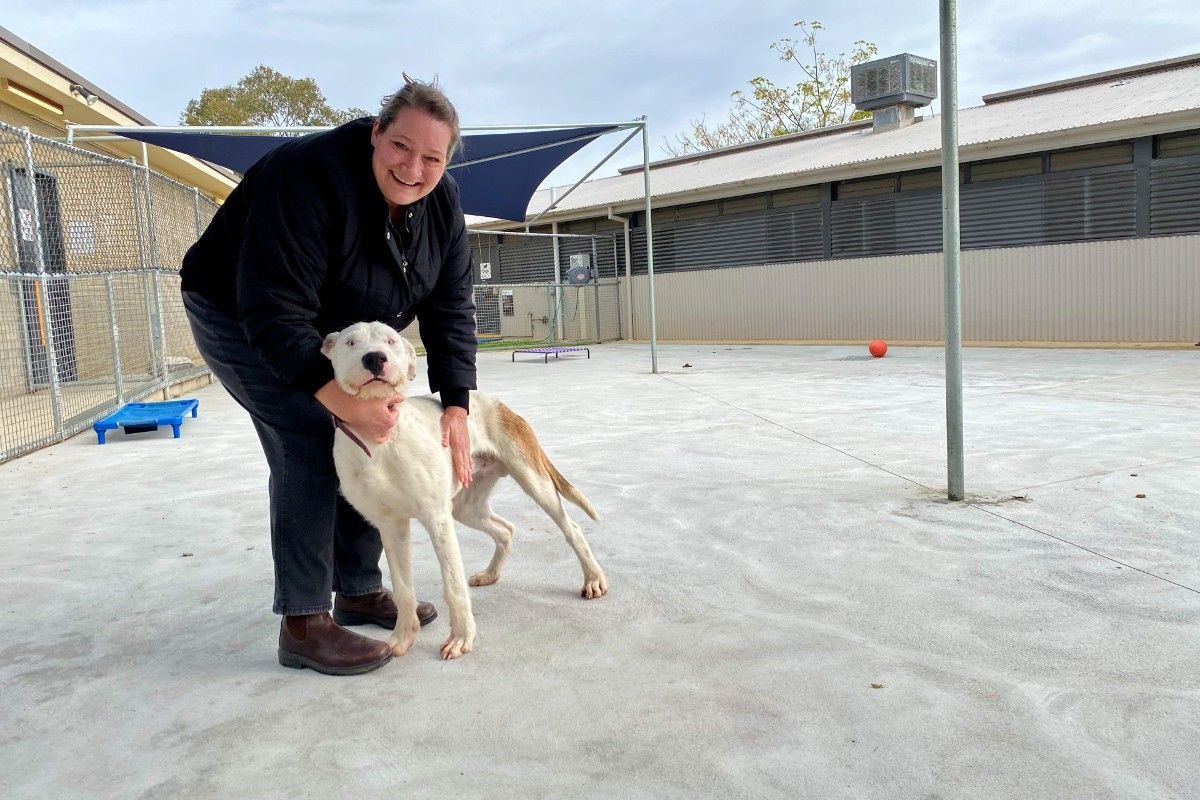
Regulatory services coordinator Julie McPhail and Wolfie showing off the new concrete exercises yards at the Glenfield Road Animal Shelter. Photo: Wagga City Council.
Glenfield Road Animal Shelter in Wagga has had a $70,000 makeover with new shade sails, concrete exercise yards and a boom gate.
The previously unused grassy space was transformed into a useable concrete area with shade sails to keep the dogs cooler in summer.
Regulatory services coordinator Julie McPhail said the shelter can now have five dogs out exercising simultaneously instead of the three they were restricted to before the upgrade.
“Concreting the yards gives us much better disease control against things like parvovirus, which can survive in the soil for long periods,” she said.
“If our dogs come down with anything, it’s now much easier for us to disinfect the yards, ensuring everyone stays healthy.”
Ms McPhail said in the summer months the dogs were restricted to exercising in the morning before it got too warm.
“It’s great to have the shade sails up to give them that little bit of extra protection,” she said.
The animal shelter also purchased “boredom busters” to keep the canines busy while staff cleaned their sleeping areas and an agility set up that included a tunnel and hoop for more interactive play.
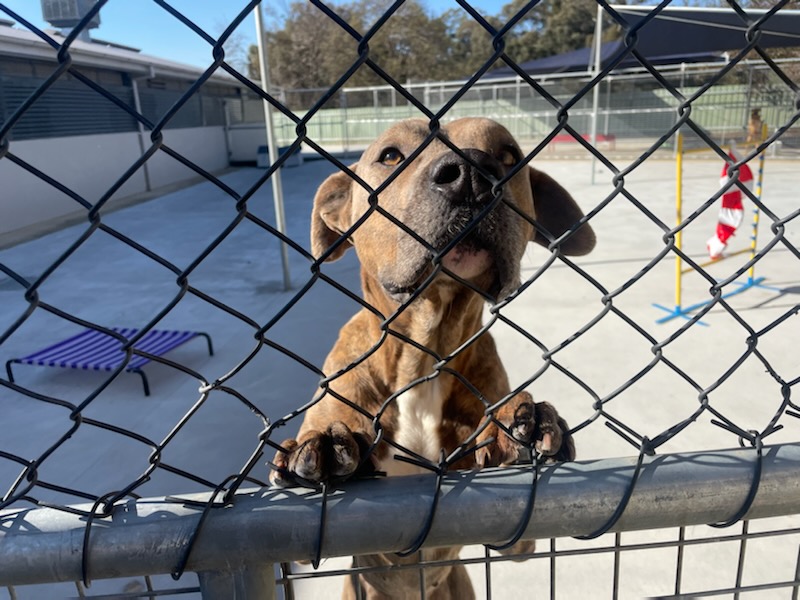
Ronny happily poses for a photo. Photo: Anna Maskus.
Ms McPhail said shelter staff spent much of their time engaging and playing with the dogs and “temperament testing” them. They introduce new arrivals to other dogs in a controlled environment to gauge how well they will relate to each other and assess dogs for their safety around people.
“We introduce them to each other on a lead male to female, male to male and female to female and right away, you usually know if they’re going to be fine with either gender,” Ms McPhail said.
“We run our hands over them, play with ears, their paws, give their tails a soft little tug; if you don’t get a reaction, it’s generally a good sign.
“We also give them a bowl of food and we have this long plastic arm, so we don’t get bitten, which we wave in their face while they’re eating to see if we get a reaction.
“We certainly don’t recommend you do this to any dog, but it’s important for us to know whether a dog is going to be safe to have in a home environment where things like that might happen.”
Staff members are occasionally at risk of bites and scratches but assessing the animals in their care is an integral part of the job, according to Ms McPhail.
“We do all these things to ensure that the dogs going out into the community have the best start,” she said.
“Dogs that need a bit more time are those particularly timid or a bit reactive – we try to get them into a rescue group, so they can have a bit more TLC and one-on-one before they’re re-homed into our community.
“The dogs may have had a rough start to life, but we want to do everything we can to make sure the next chapter of their life, and that of their new family, is a safe and happy.”








